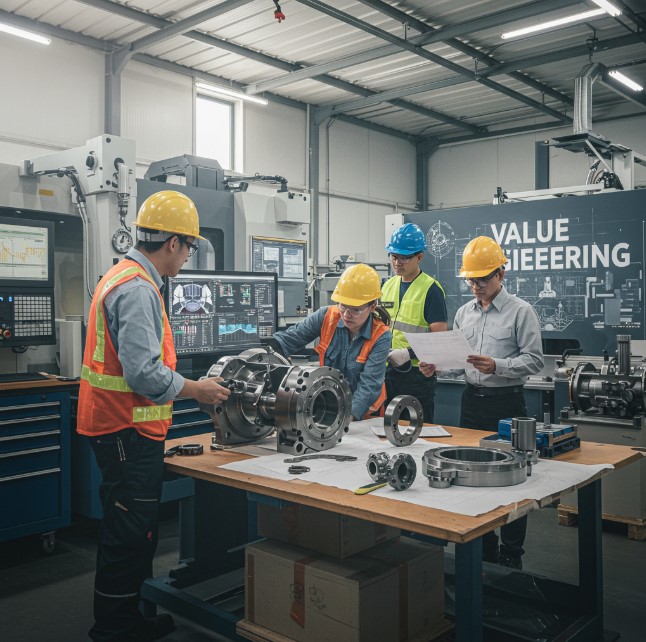Value Engineering

Value Engineering Services
Our value engineering services aims to optimize mechanical products for cost-effectiveness, performance, and efficiency without compromising quality. Our systematic approach helps businesses reduce material and production costs, enhance functionality, and improve manufacturability. With over decade of experience, we ensure that your products deliver maximum value at minimum cost.
The Value Engineering Process
Gathering Information
Simulex takes steps to determine the details of the project. They include - requirements, functionality, and the constraints involved in the project
Evaluation
All possible methods to meet the requirements of the project are evaluated and analyzed. Utmost care is taken to ensure that the best method is implemented which results in cost savings.
Alternative Generation
On ascertaining the details of the project, Simulex generates a list of methods and possibilities for executing the project or providing value engineering services.
Presentation
Conclusively, the most rewarding method is selected and presented for customer approval and implementation.
Our Process – Mechanical Value Engineering
Product Analysis & Cost Breakdown
Function-Cost-Worth Analysis
Material Optimization & Alternate Selection
Design Simplification & Standardization
Process Optimization & Manufacturing Cost Reduction
Performance Enhancement & Reliability Improvement
Let’s Connect & Build Something Amazing Together!
Got a question, an idea, or need expert guidance? We’re here to help! Fill out the form, and our team will get back to you as soon as possible. Whether it’s a project inquiry or just a quick chat, we’re ready to collaborate and create something incredible together!
